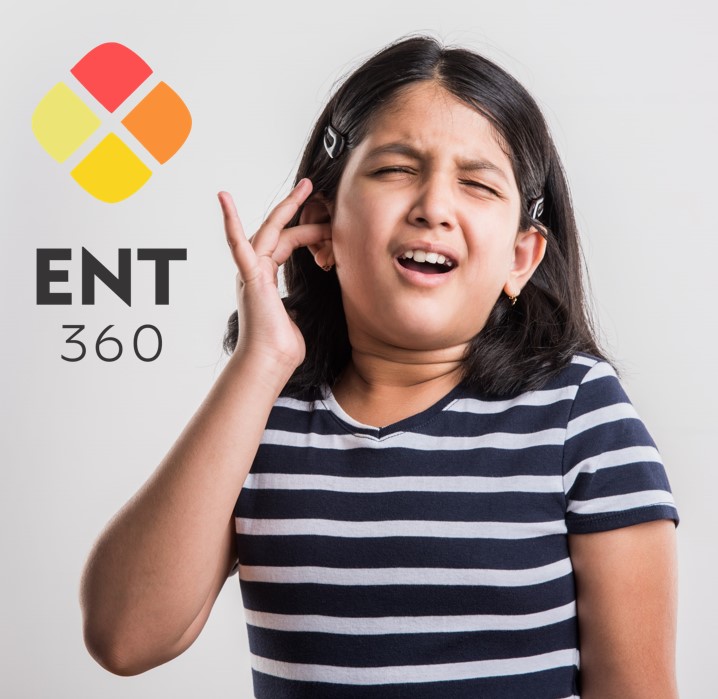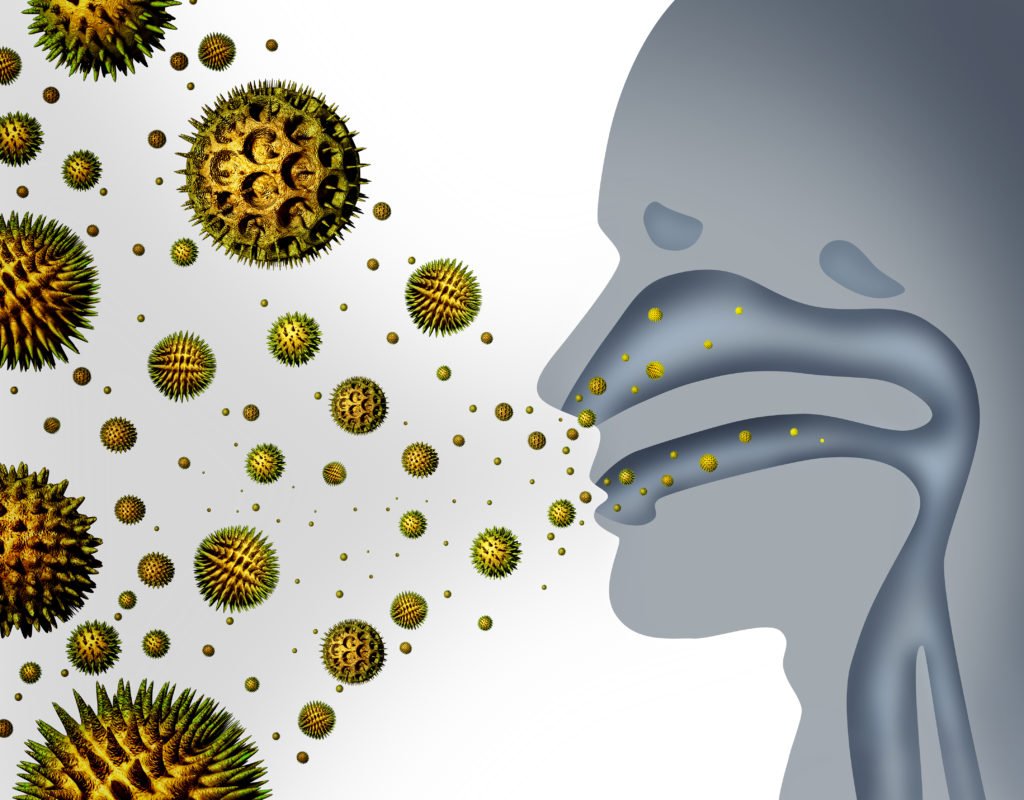Ear Pain due to cold is a common presentation in the emergency department particularly for children during the late night hours.

Pathophysiology of ear pain due to cold
Ear is connected to the back of the nose via a bony-cartilaginous tube called the eustachian tube. Its function is to equalise the air pressure within the middle ear to the atmospheric pressure. When a person is suffering from a blocked nose or excessive nasal discharge due to cold the eustachian tubes also get inflamed or blocked. This leads to an imbalance between the middle ear and the atmospheric pressure.
In the initial phases after eustachian tube block a vacuum develops in the middle ear and mastoid, and the tympanic membrane starts to get pulled inwards. This is the stage of retraction of the tympanic membrane. It is an uncomfortable feeling for the patient, if the pain isn’t too great it can also feel like persistent itching in the ear during this phase.
If the eustachian tube does not open at this stage, the mucosa of the ear gets inflamed and starts to secrete fluid in the ear – this is the stage of acute otitis media with effusion. Once the pressure in the ear starts to rise, the tympanic membrane bulges outwards and gets congested. The pain receptors in the eardrum get activated and severe pain is felt by the patient.
Relief from this pain can occur in two ways – either the eustachian tube will open up and the fluid will drain in the nasopharynx or the stretched eardrum will rupture and release the fluid into the ear canal.
Why does the ear pain due to cold happen mostly at night time?
During the day when we talk, chew, swallow, cough or sneeze the eustachian tube opens and closes due to the muscular activity of palatal muscles. At night this activity reduces to occasional swallowing of saliva and the eustachian tube remains closed. It takes a couple of hours of sleeping and inactivity for a high pressure to build up and cause ear pain which wakes up the patient.
Treatment
Nasal decongestants along with antihistamines are the mainstay of treatment of acute otitis media. Anti-inflammatory drugs like ibuprofen reduce the pain and inflammation of the eustachian tube and middle ear mucosa. In children adenoid hypertrophy is the most common cause of recurrent acute otitis media and it must be evaluated. Antibiotics should be reserved for recalcitrant cases or patients with fever.


